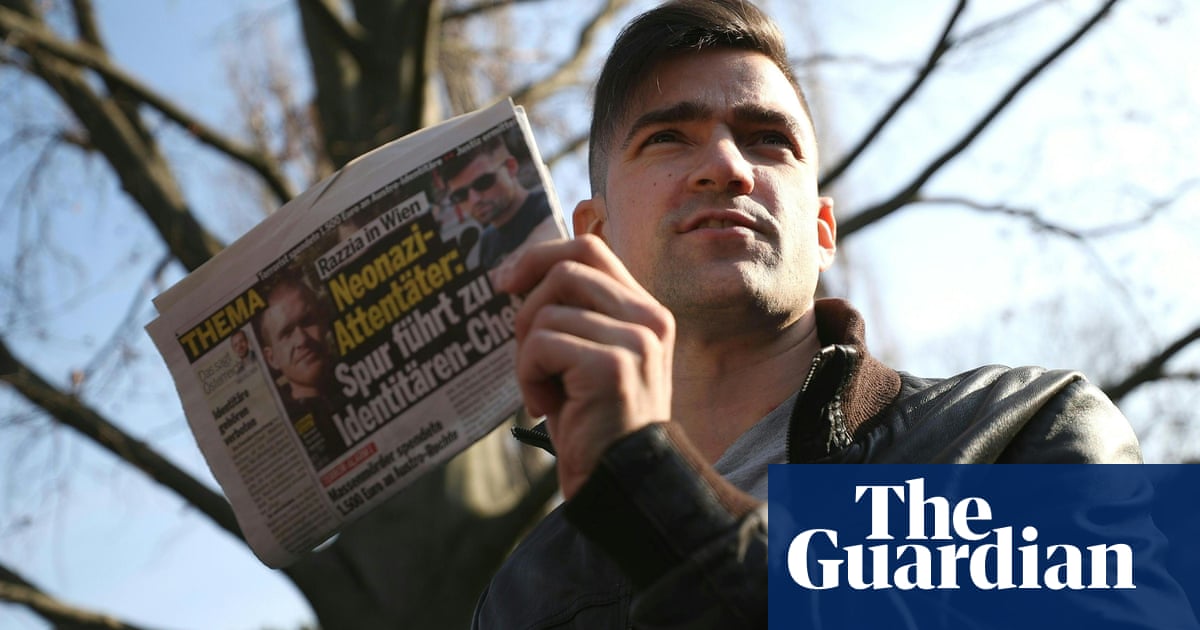
The City Council of Dresden, the capital of the state of Saxony in eastern Germany, last week passed a resolution declaring the city to be in the grips of a Nazi emergency. The resolution stated that “anti-democratic, anti-pluralist, misanthropic and right-wing extremist attitudes and actions, including violence in Dresden, are occurring with increasing frequency.”
The industrial city has been a hotbed of neo-Nazism and a vicious anti-immigrant, anti-Muslim campaign. Although its officials are confident that the vast majority of Dresdeners are neither right-wing extremists nor anti-democratic, the city has a history of harboring extremist groups. In the early 1990s, neo-Nazi groups began staging rallies there to remember what they called “the bombing Holocaust,” in an underhanded reference to the bombing of Dresden by British and American forces in the Second World War.
The state of Saxony has also long been a stronghold of the far-right National Democratic Party of Germany (NPD) and, more recently, the Alternative for Germany (AfD) party. In state elections in September, support for the AfD surged 17.8 percent from 2014 to reach 27.5 percent.
The xenophobic Patriotic Europeans against the Islamisation of the Occident (Pegida) was established in Dresden in 2014. Pegida supporters say people need to “wake up” to the threat of Islamist extremists. They want Germany to curb immigration and accuse the authorities of failing to enforce existing laws. The movement has spurred large counter-rallies in the city.
Saxony is a stronghold of the far-right AfD, the second-largest political party in Germany’s September state elections. While AfD has tried to distance itself from Pegida, many believe they are part of a continuum of populist activism. Polls have indicated that more than 80 percent of the Pegida’s followers voted for AfD in the last election. The two groups get their momentum from policies targeting immigrants and raising false alarms about an Islamic cultural invasion.
The warning by Dresden’s officials about a Nazi emergency is prudent and justified from recent experience and from history. There is a slippery slope from populism to racism; and from AfD-like political parties to Pegida-like nativist groups and neo-Nazism. Many of the racist attacks against immigrants are perpetrated by followers of populist groups and tolerated by those parties. The spectrum of right-wing activism in Europe these days clearly includes virulent anti-Islamic views, replete with alarmist conspiracy theories meant to whip up xenophobia and manipulate the electorate.
The Jewish German philosopher Hannah Arendt wrote extensively about the links between populism, racism and totalitarianism. Her analysis, written decades ago, still rings true today, which is why her groundbreaking book “The Origins of Totalitarianism,” in which she explains the roots of Nazism and Stalinism, is enjoying a revival in light of the recent gains by the far right, which include elements of totalitarianism in their political programs. Many analysts believe that recent political developments in Europe are reminiscent of the situation in the 1920s and 30s that allowed the Nazis to rise, which Arendt wrote about in her book. She provides insight into the mechanisms that allow so many people to readily accept lies in times of global uncertainty.
For example, Arendt wrote: “In an ever-changing, incomprehensible world, the masses had reached the point where they would, at the same time, believe everything and nothing, think that everything was possible and that nothing was true... Mass propaganda discovered that its audience was ready at all times to believe the worst, no matter how absurd, and did not particularly object to being deceived because it held every statement to be a lie anyhow.”
Arendt explained how Nazism started as a populist movement before turning into a repressive totalitarian regime, employing xenophobia and racism as tools to rile the masses. She wrote: “The totalitarian mass leaders based their propaganda on the correct psychological assumption that, under such conditions, one could make people believe the most fantastic statements one day, and trust that if the next day they were given irrefutable proof of their falsehood, they would take refuge in cynicism. Instead of deserting the leaders who had lied to them, they would protest that they had known all along that the statement was a lie and would admire the leaders for their superior tactical cleverness.”
Thus, in today’s world, extremist groups keep repeating simplistic and false storylines, which blame Muslims or other scapegoats and offer easy solutions. This approach was applied by totalitarian leaders such as Adolf Hitler, Arendt wrote.
Extremist groups keep repeating simplistic and false storylines, which blame Muslims or other scapegoats and offer easy solutions.
Abdel Aziz Aluwaisheg
Informed by this history, of which Dresden was an important part, the city elders issued their warning last week. Their resolution warned that “right-wing extremist attitudes and actions... are occurring with increasing frequency” and called on the city and civil society organizations to “strengthen a democratic culture, protect minority and human rights, and help the victims of right-wing violence.” It called for investigating “the causes and consequences of anti-Semitism, racism and the position of the extreme right,” with the aim of “restoring trust in democratic institutions” and “appreciating diversity.” The resolution was passed by 39 votes to 29. Surprisingly, the motion was opposed by Germany’s ruling party the Christian Democratic Union (CDU), which said the vote was a “provocation.”
Dresden’s alarm at the rise of neo-Nazism is not unfounded. The CDU’s failure to join this call for action ignores both history and the momentum that the far right is gaining. In September, the NPD’s Stefan Jagsch was unanimously elected by seven councilors as mayor of the small town of Waldsiedlung, near Frankfurt. He built his campaign on fighting immigration and what he called “asylum scams.”
In other German cities, and throughout much of Europe, groups such Pegida and AfD are gaining ground. In fact, the march toward totalitarianism seems global, mirroring its rise in the 1930s and 1940s.
Abdel Aziz Aluwaisheg is the GCC Assistant Secretary-General for Political Affairs and Negotiation, and a columnist for Arab News. The views expressed in this piece are personal and do not necessarily represent GCC views. Twitter: @abuhamad1












